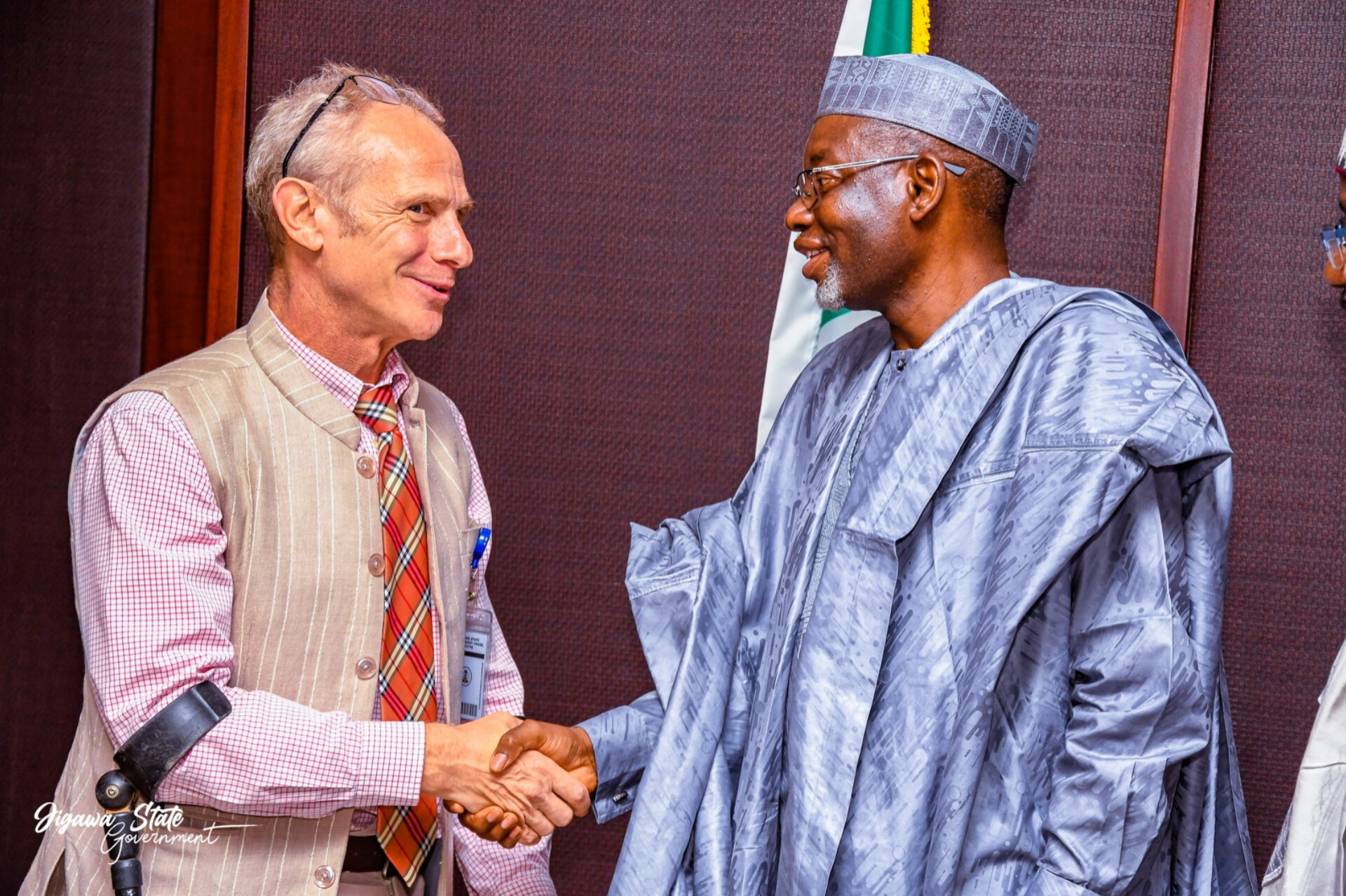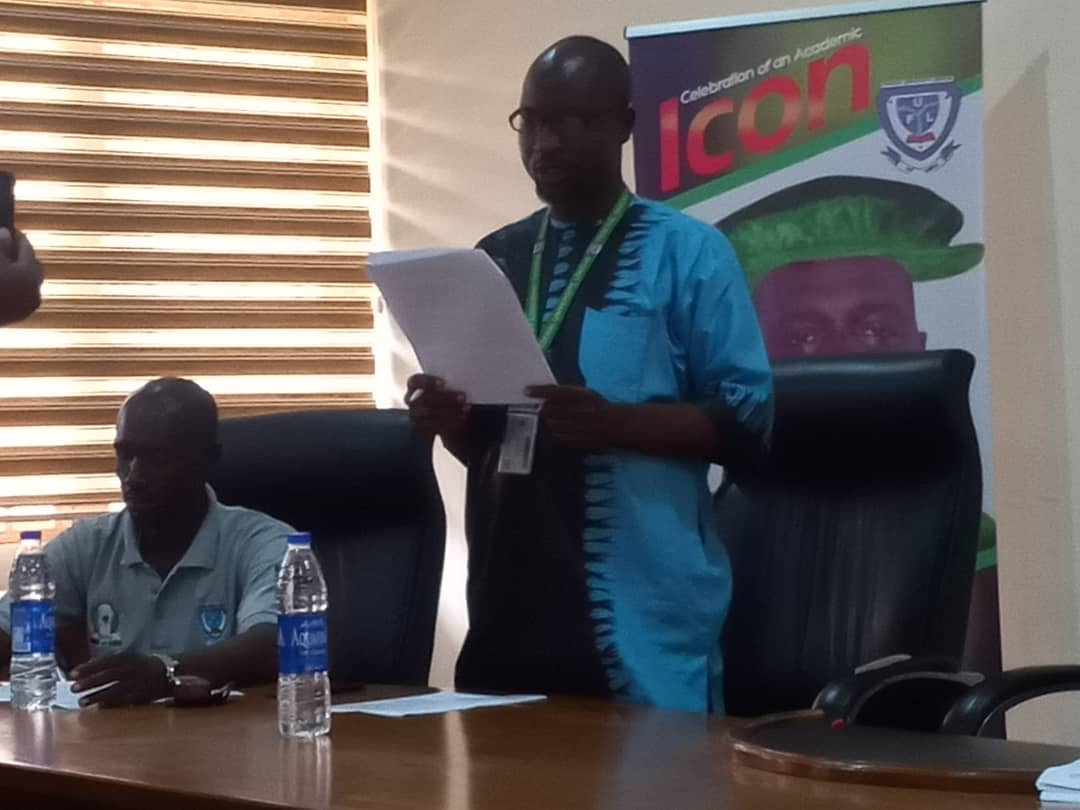By Ahmed Rufa’i, Dutse
The UK government through the British High Commission in Nigeria has pledged continued support to the Jigawa state government in the reforms of it’s educational system to improve human capital development in the state.
This was contained in a communique issued after a one day Education Reform Dialogue with critical stakeholders at Three Star Hotel in Dutse, the state capital.
The communique was signed by the state ‘s Team Leader of the Partnership for Learning for All in Nigeria (PLANE) projects, Mr Mustapha Balarabe Ahmed.

The communique indicated the theme of the dialogue to be ‘Repositioning Teaching and Learning for Human Capital Development’.
The dialogue was convened by the Ministry of Basic Education and the Ministry of Higher Education, Science and Technology in Jigawa State.
The communique explained that the dialogue is targeted at highlighting the 12-point agenda of the new Jigawa administration, geared towards repositioning the state as a centre of excellence in addressing learning poverty and other challenges with basic education, the dearth of teachers and the high prevalence of out-of-school children in the state.
The communique disclosed further that “Jigawa State has set aside more than N2.6b to recruit, train and induct 6,000 new teachers adding that a recruitment committee was inaugurated by the Honorable Commissioner for Basic Education, Honorable Dr. Lawan Yunusa Danzomo during the Education Reform dialogue.
“This reform is in line with key recommendations highlighted in a new Teacher Recruitment and Deployment Policy approved by the state, which the Foreign and Commonwealth Development Office (FCDO) supported through its Partnership for Learning for All in Nigeria (PLANE) and Partnership for Reform and Learning (PERL-ARC) programmes”.
FCDO’s Senior Education Adviser, Mr. Ian Attfield, during a courtesy visit to the Governor on the day of the event, commended the effort of the new administration, while pledging the UK Government’s support.
Mr Attfield expressed appreciation the state governor, Malam Umar Namadi on the formidable steps taken by his administration to address key strategic issues in Jigawa State’s education sector, especially the current efforts to address the critical shortage of teachers.
He said “Nigeria is still experiencing a learning crisis, and one of the most vital ingredients that any state or government can do is to supply qualified, motivated and adequately supported teachers. The UK is delighted to see the progress being made across the board, under the leadership and vision of Governor Namadi”.
The communique added that the state governor appreciated FCDO for its interventions in the state which has spanned over a decade, saying that the state is still reaping from the benefits of the Public Financial Management reforms done by the UK Government through the then Department for International Development (DFID).
The governor maintained that “PLANE is a programme which the Jigawa State Government is partaking in, and I want to assure you that just as we sustained reforms of the public financial management systems, we will also continue to sustain whatever reform or intervention you bring to us.
“We will sustain it and build on it. That is why you can see what we are doing in education in terms of teacher recruitment, deployment, training and retraining and our efforts to reduce the out-of-school children”, the Governor said.
He added that the state’s Tsangaya programme is designed specifically to drastically reduce the number of out-of-school children and called on FCDO to join hands as it is poised to replicate FCDO’s interventions.
‘i, Dutse
The UK government through the British High Commission in Nigeria has pledged continued support to the Jigawa state government in the reforms of it’s educational system to improve human capital development in the state.
This was contained in a communique issued after a one day Education Reform Dialogue with critical stakeholders at Three Star Hotel in Dutse, the state capital.
The communique was signed by the state ‘s Team Leader of the Partnership for Learning for All in Nigeria (PLANE) projects, Mr Mustapha Balarabe Ahmed.
The communique indicated the theme of the dialogue to be ‘Repositioning Teaching and Learning for Human Capital Development’.
The dialogue was convened by the Ministry of Basic Education and the Ministry of Higher Education, Science and Technology in Jigawa State.
The communique explained that the dialogue is targeted at highlighting the 12-point agenda of the new Jigawa administration, geared towards repositioning the state as a centre of excellence in addressing learning poverty and other challenges with basic education, the dearth of teachers and the high prevalence of out-of-school children in the state.
The communique disclosed further that “Jigawa State has set aside more than N2.6b to recruit, train and induct 6,000 new teachers adding that a recruitment committee was inaugurated by the Honorable Commissioner for Basic Education, Honorable Dr. Lawan Yunusa Danzomo during the Education Reform dialogue.
“This reform is in line with key recommendations highlighted in a new Teacher Recruitment and Deployment Policy approved by the state, which the Foreign and Commonwealth Development Office (FCDO) supported through its Partnership for Learning for All in Nigeria (PLANE) and Partnership for Reform and Learning (PERL-ARC) programmes”.
FCDO’s Senior Education Adviser, Mr. Ian Attfield, during a courtesy visit to the Governor on the day of the event, commended the effort of the new administration, while pledging the UK Government’s support.
Mr Attfield expressed appreciation the state governor, Malam Umar Namadi on the formidable steps taken by his administration to address key strategic issues in Jigawa State’s education sector, especially the current efforts to address the critical shortage of teachers.
He said “Nigeria is still experiencing a learning crisis, and one of the most vital ingredients that any state or government can do is to supply qualified, motivated and adequately supported teachers. The UK is delighted to see the progress being made across the board, under the leadership and vision of Governor Namadi”.
The communique added that the state governor appreciated FCDO for its interventions in the state which has spanned over a decade, saying that the state is still reaping from the benefits of the Public Financial Management reforms done by the UK Government through the then Department for International Development (DFID).
The governor maintained that “PLANE is a programme which the Jigawa State Government is partaking in, and I want to assure you that just as we sustained reforms of the public financial management systems, we will also continue to sustain whatever reform or intervention you bring to us.
“We will sustain it and build on it. That is why you can see what we are doing in education in terms of teacher recruitment, deployment, training and retraining and our efforts to reduce the out-of-school children”, the Governor said.
He added that the state’s Tsangaya programme is designed specifically to drastically reduce the number of out-of-school children and called on FCDO to join hands as it is poised to replicate FCDO’s interventions.




